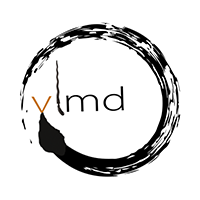April is National Poetry Month. I woke up on April 2nd and that was my first thought. My second thought was, what poem should I feature in my newsletter? Without prompting, Hölderlin’s Patmos came to mind. Hölderlin??? I hadn’t read him in years. I tried to think of another poem but could not shake Patmos from my mind, who knows why? I’ve become resigned to not questioning these things and going with the flow.
The version I know is Michael Hamburger’s translation. Like Paul Celan, I consider literary translation a creative art equal to writing one’s own poetry or fiction. Hamburger’s translation re-creates the slippery nature of Hölderlin’s syntax.
Nah ist
Und schwer zu fassen der Gott.
Wo aber Gefahr ist, wächst.
Das Rettende auch.
Near is
And difficult to grasp, the God.
But where danger threatens
That which saves from it also grows.
The editions I have seen have the first line indented, creating a gap right before the word ‘near’. This juxtaposition of proximity and distance continues with the convoluted syntactical structure. It is only at the end of the 2nd line that we see the subject of the sentence, the God. The act of grasping the meaning of that first sentence parallels the physical struggle to grasp the God. What we struggle to understand is also what is closest and what saves us.
The art of literary translation is such a wrestling between the far and near, the grasping of meaning between and out of language. Just as Patmos‘ opening lines juxtapose physical emptiness (the space in the indent of the first line) and text, the poet (and translator) must negotiate silence and word. Patmos goes on to lament the loss of spirituality in the material world and the need for poetry to mediate the middle ground between the divine and the secular.
Perhaps that is why we create and need poetry: to establish the presence of what is absent, to inhabit the crossroads of the universal and the personal. Patmos, after all, was the island where St. John was given the clairvoyance of the Apocalypse. Hölderlin suggests that poetry likewise takes us beyond/away (apo) from the hidden (calypso).
You might be surprised to hear from a writer such as myself that poetry cannot comfort or heal. It has no power to change the world. Poetry is the act of revelation. And in the moment of clear-seeing we are offered our own salvation, should we choose it.

